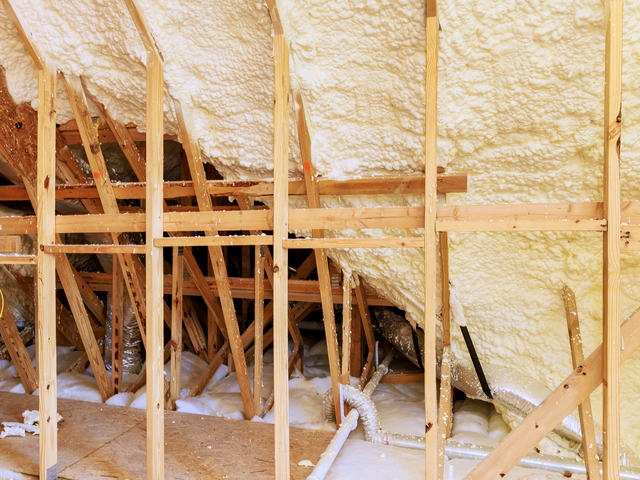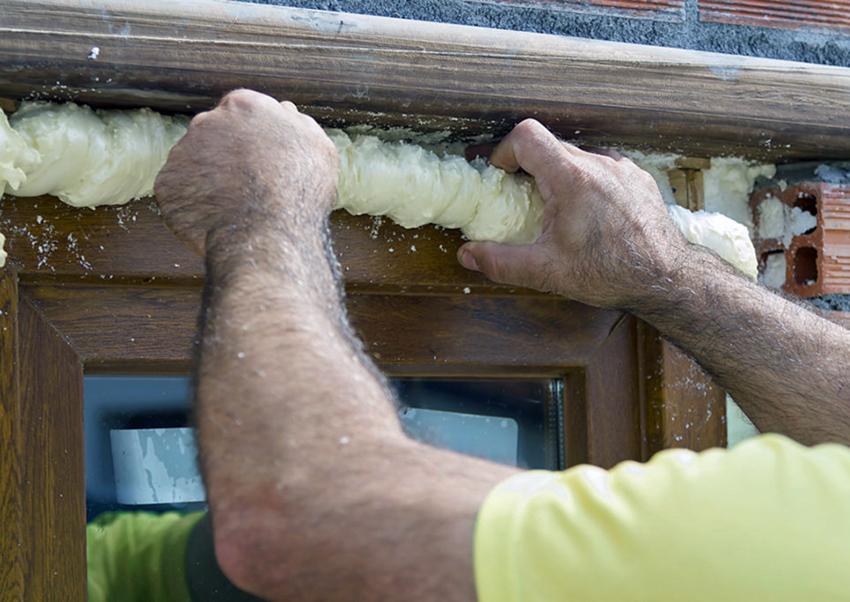The Trick Features of Spray Foam Insulation That Enhance Your Home's Performance
Spray foam insulation offers numerous crucial functions that greatly enhance a home's efficiency. Its superior air securing capacities produce a barrier against air leak, improving power efficiency. Coupled with high thermal insulation and moisture resistance, it adds to an extra comfy living environment. Understanding these facets can cause educated choices about home insulation. However, the advantages extend past convenience and performance, prompting a closer assessment of its general influence on home upkeep and expenses.
Superior Air Sealing Capabilities

Enhanced Thermal Insulation
While numerous insulation materials offer some level of thermal resistance, spray foam insulation stands out in producing a very effective thermal barrier. This unique item broadens upon application, loading spaces and gaps that traditional insulation commonly leaves exposed. The closed-cell framework of spray foam substantially minimizes heat transfer, trapping warmth in the winter and keeping interiors cool in the summertime.

Moreover, its capability to satisfy hard-to-reach locations and irregular shapes guarantees comprehensive protection, additional boosting its shielding properties. Basically, spray foam insulation not just fulfills yet exceeds modern-day insulation standards, making it an engaging choice for those looking for to enhance their home's energy efficiency.
Dampness and Mold Resistance

Energy Performance and Expense Financial Savings
Power efficiency is a substantial benefit of spray foam insulation, as it lessens air leaks and thermal bridging, resulting in reduced power consumption for home heating and cooling. This insulation type increases upon application, filling even the tiniest spaces and providing a continuous obstacle. Home owners experience a much more secure indoor temperature level, minimizing reliance on heating and cooling down systems.
The boosted energy efficiency equates into concrete expense savings on utility expenses, making spray foam insulation a financially audio financial investment. In time, the decrease in energy usage can cause substantial financial savings, justifying the first installation expenses. In addition, many home owners might get power performance rebates, even more boosting the financial advantages.
Flexibility and Application Adaptability
Spray foam insulation offers exceptional versatility and application adaptability, making it suitable for a variety of building jobs. This sort of insulation can be applied in diverse atmospheres, varying from household homes to industrial structures and even commercial facilities. Its capacity to satisfy irregular surfaces permits it to load gaps and voids successfully, ensuring remarkable thermal efficiency.
In addition, spray foam insulation is readily available in various solutions, including open-cell and closed-cell types, accommodating certain needs such as soundproofing or moisture control. spray foam removal. It can be utilized in attic rooms, walls, basements, and crawl areas, demonstrating its flexibility throughout various building scenarios
The convenience of application indicates her response it can be mounted rapidly, decreasing labor costs and job timelines. In general, the adaptability and application versatility of spray foam insulation make it an excellent choice for enhancing energy effectiveness and convenience in a wide variety of structure jobs.
Often Asked Questions
How Much Time Does Spray Foam Insulation Last?
Spray foam insulation generally lasts in between 25 to 80 years, depending upon factors such as application high quality, ecological problems, and maintenance. Its longevity contributes considerably to long-term power effectiveness and architectural honesty in various setups.
Is Spray Foam Insulation Safe for Indoor Air Top Quality?
Spray foam insulation, when appropriately mounted and healed, is generally secure for interior air quality. It is necessary to assure adequate ventilation during application and to choose low-VOC alternatives to decrease potential health dangers.
Can I Apply Spray Foam Insulation Myself?
Using spray foam insulation oneself is feasible, his explanation however needs mindful attention to safety and application techniques. Experts frequently suggest employing specialists to ensure appropriate setup and prevent potential risks connected with inappropriate handling and application.
What Is the R-Value of Spray Foam Insulation?
The R-value of spray foam insulation generally ranges from 6 to 7 per inch, depending upon the solution (spray foam removal). This high thermal resistance makes it a reliable selection for boosting energy efficiency in domestic buildings
How Does Spray Foam Insulation Affect Home Resale Value?
Spray foam insulation favorably affects home resale worth by boosting energy performance and lowering energy prices. Possible purchasers often value the lasting financial savings and convenience it offers, making residential properties with this insulation extra appealing out there.
While many insulation materials give some degree of thermal resistance, spray foam insulation excels in creating an extremely efficient thermal obstacle. By decreasing wetness breach, spray foam insulation assists keep a drier environment within the home, therefore improving total comfort and security. Energy performance is a substantial advantage of spray foam insulation, as it reduces air leakages and thermal connecting, resulting in lowered power usage for heating and cooling. The boosted power performance converts into tangible price financial savings on utility bills, making spray foam insulation an economically sound financial investment. Spray foam insulation positively affects home resale value by enhancing energy efficiency and reducing utility expenses.